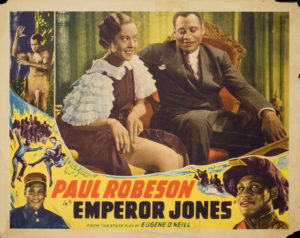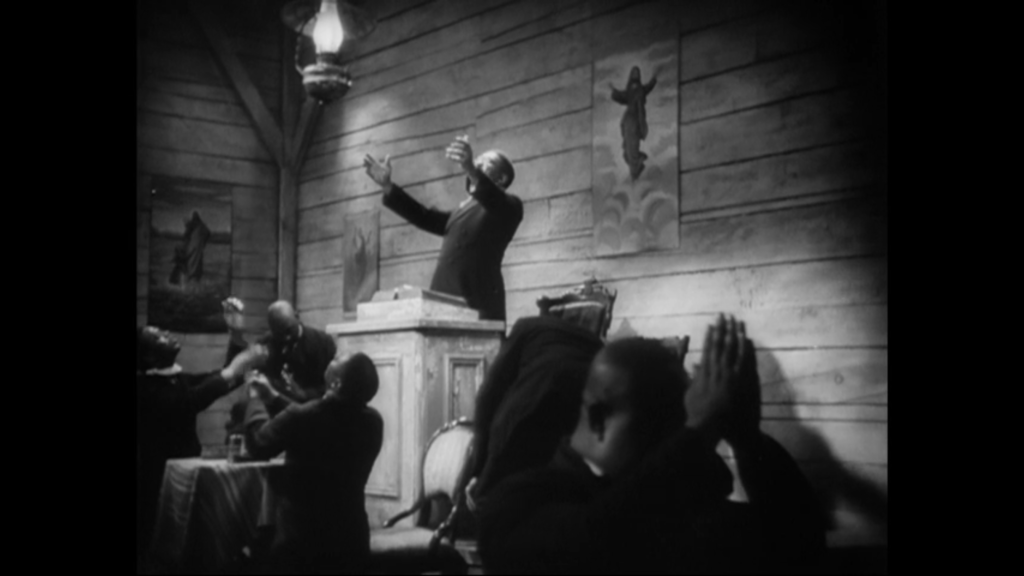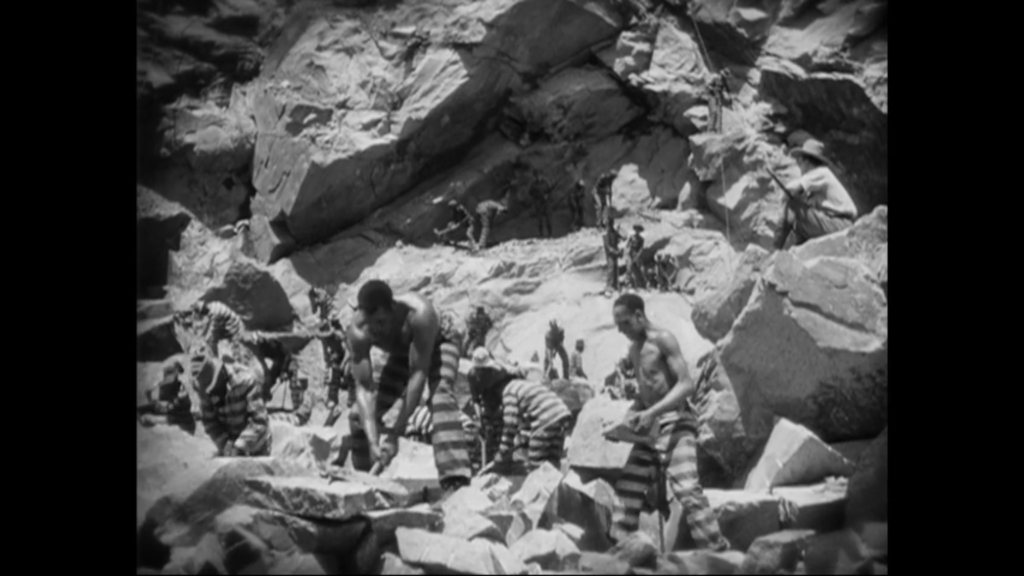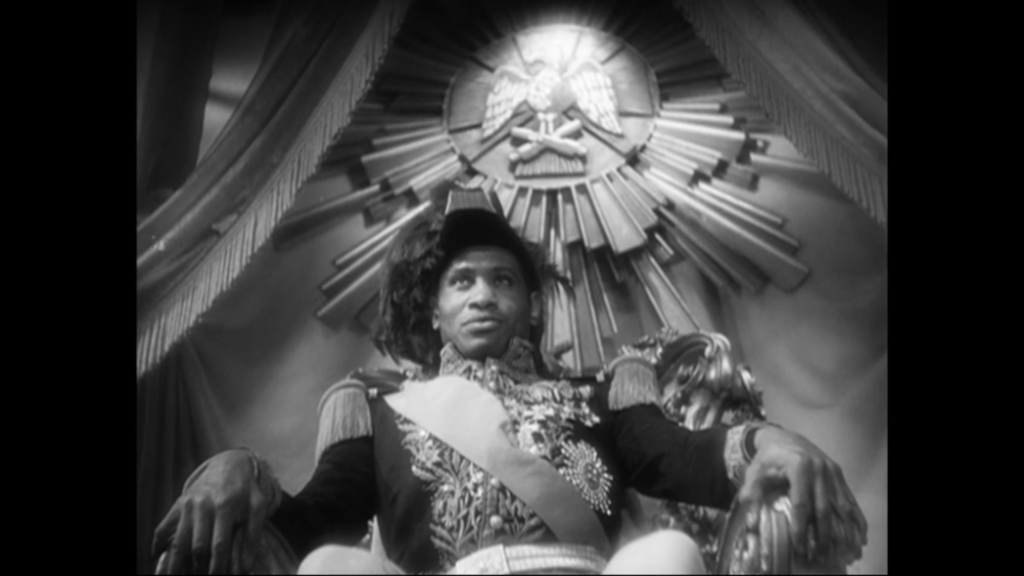|

Synopsis:
When Pullman porter Rufus Jones (Paul Robeson) accidentally kills a friend (Frank Wilson) in a craps game, he’s sent to a prison chain gang, but manages to escape to a Caribbean Island, where he’s bought by a white trader (Dudley Digges) and eventually comes to rule the island — for awhile.
|
|
Genres, Themes, Actors, and Directors:
- African-Americans
- Fugitives
- Paul Robeson Films
- Play Adaptations
- Ruthless Leaders
Response to Peary’s Review:
Peary writes that this “curious adaptation of Eugene O’Neill[‘s] play” — inspired by the United States’ occupation of Haiti and the rise to power of repressive President Vilbrun Guillaume Sam — suggests “that one of [Jones’] crimes is that he comes to regard himself as better than his people, but in fact this character is shown to be better than the rest,” given that “of the blacks in the film, Jones is the only one with dignity or intelligence”, and he “certainly doesn’t fit in with the blacks in Harlem or the equally uncivilized natives.” He adds that “it’s good seeing a defiant black man on the screen, particularly in 1933, and one wonders how white audiences of the day reacted to Jones — or, more likely, Robeson — standing up to a white guard and outsmarting the others”. (According to an unsubstantiated claim on Wikipedia, “particularly in the South, the response [to the film’s release] was virulent: more than forty lynchings erupted in its opening week across the South where it wasn’t showing yet.”) Peary notes that “this is one of Robeson’s few opportunities to play a black man whose role isn’t to improve the lot of whites” but “it’s probable Jones is punished at the end because he overstepped his bounds when he didn’t kowtow to whites.”
It’s truly challenging to know how to respond this film, which paradoxically broke new ground by starring an African-American in a strong leading role while simultaneously presenting countless problematic elements — including ample use of the “n” word and stereotypical presentation of most blacks as either religious naifs, clueless natives, or wily hucksters. Jeffrey C. Stewart‘s “academicky” but insightful commentary on the Criterion DVD release helps contextualize the story as one of internalized colonialism, with whitewashed Jones eager to take an imperial stance rather than work with and for “his people” (especially ironic given Robeson’s notorious Communist leanings in real life), and is recommended. This curious tale of ambition run amok remains troublesome on multiple levels, but Robeson’s commanding performance is well worth a watch, and film fanatics will want to at least be familiar with this pre-Code oddity.
Redeeming Qualities and Moments:
- Fine cinematography and art direction



Must See?
Yes, for its historical relevance.
Categories
Links:
|




One thought on “Emperor Jones, The (1933)”
First viewing. Not must-see but I will concede its historical value for those ffs who have particular interest in the subject matter. I just don’t see substantial, satisfying power *as a film*. ~partly for reasons brought out in the assessment given.
As well, this is a film adaptation of a play (which I’ve read) – and something of the theatricality of O’Neill’s original text seems less effective on-screen (even the tinted jungle sequence in the latter part of the film).